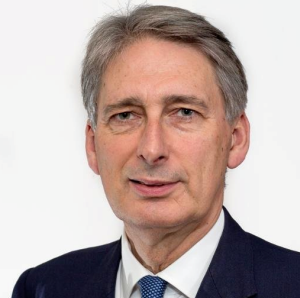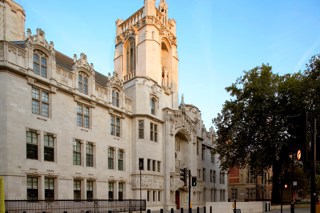Chancellor Philip Hammond vowed to create “an economy that works for everyone” before announcing a rise in the minimum wage and cuts to salary sacrifice schemes in his Autumn Statement.
Corporation tax will be cut to 17% by 2020, making it the lowest in the G20, while the National Living Wage will rise from its current £7.20 rate to £7.50 in April next year.
A rise in fuel duty was frozen for the seventh year in a row, meanwhile, making it the longest freeze of the levy for 40 years.
A clamp-down on fraudulent 'cash for crash' insurance claims will also bring a £40 saving on the average policy, according to the chancellor.
Some employees taking advantage of the current salary sacrifice schemes, which allow tax-free purchase of a range of products spanning everything from holidays to smartphones, may be disappointed by the chancellor’s statement.
From April, such schemes will be abolished, although those already part-way through such a purchase plan supported by their employer will benefit from a period of grace extending to 2021.
Ultra-low emission cars and bicycles will be exempt from the changes, however.
Mr Hammond said that the measure had been put in place to end the “unfairness” suffered by the self-employed, who do not benefit from such schemes.
The government has also committed to removing disguised tax benefits for employees once again, Mr Hammond stating that the self-employed and employers won't be able to use the VAT flat-rate scheme inappropriately, Mr Hammond adds.
He said: “We will abolish the tax advantages linked to employee shareholder status in response to growing evidence that it is being primarily used for tax planning purposes by high-earning individuals.”
Economic infrastructure was central to the chancellor’s plans, with 1.2% of GDP committed to related initiatives injcluding a £5 billion investment in the development of a better 5G mobile data network.
Mr Hammond stated that the government would commit to being “a number one destination for business” and make up a productivity shortfall which sees Britain lag 30ppts behind Germany and the US with the help of a £24 billion National Productivity Investment Fund.
Transport networks will contribute to this, with the chancellor announcing the investment of £1.1 billion to decrease congestion and upgrade local roads and £220 million to tackle "pinch points" on strategic roads.
A further £390 million will be committed to developing “a competitive advantage” in the areas of low emission vehicles, with a 100% first year capital allowance on schemes to develop the EV charging infrastructure.
Commenting on the changes, NFDA director Sue Robinson, said: “The Government’s decision to invest £1.3 billion to improve UK’s roads and transport networks will be essential as it will make UK business more productive and assist consumers by making roads safer.
“The reduction in congestion will also improve journey times, which will benefit the UK economy, particularly the commercial vehicle sector.
“A cut in corporation tax will be a clear signal of Government’s pledge to reassure businesses and help them face possible short term challenges. We are pleased to see that the Government is committed to reducing it to 17% from 20% by 2020.”
Commenting on changes to the National Living Wage, Robinson added: “The National Living Wage rise encourages disposable income growth, which in turn plays a key role in supporting consumers’ confidence.
“It is vital for NFDA members and other big retailers that households continue to feel safe in committing to purchase high value goods.
“Nevertheless, this will bring more costs for businesses which are already facing extra costs due to the apprenticeship levy and increase in employers’ national insurance contribution.”
James Fawcett, partner at Gordons law firm, suggested that the change to the minimum wage could be a “headache” for dealerships, however. He said: “This increase could pose another headache for the dealerships less than eight months since the National Living Wage was first introduced.
“Many employers spent those first few months assessing the impact of increased staff costs and although there has been an element of restructuring, the general feeling was that the new National Living Wage was still only a small increase on the National Minimum Wage that was already in place.
“Now they are faced with another 30p increase from April and only time will tell the impact this will have on employers.
“Of course, critics will argue it’s still not enough. It is worth noting that the National Minimum Wage increased every year and it was to be expected that National Living Wage would do the same. In fact, the new figure is less than the £7.64 that had been already been suggested by the Low Pay Commission.
“It is also significant that even with this increase the Government’s National Living Wage is still almost £1 lower than the voluntary Living Wage, which is set by the Living Wage Foundation, for employees outside of London and £2.25 lower for those in London.”
In future, the annual budget will take place in the autumn, Mr Hammond revealed, with a response to OBR findings in the spring.
The chancellor claimed that this was "good practice" according to the IMF and allowed greater debate and flexibility of future tax reforms.
Referring to the government's plan to alleviate the national debt, Mr Hammond said that it would no longer deliver a surplus by 2019/20, stating: "The PM and I aim to return to balance as soon as practicable while leaving enough flexibility to support the economy in the near term."


















Login to comment
Comments
No comments have been made yet.